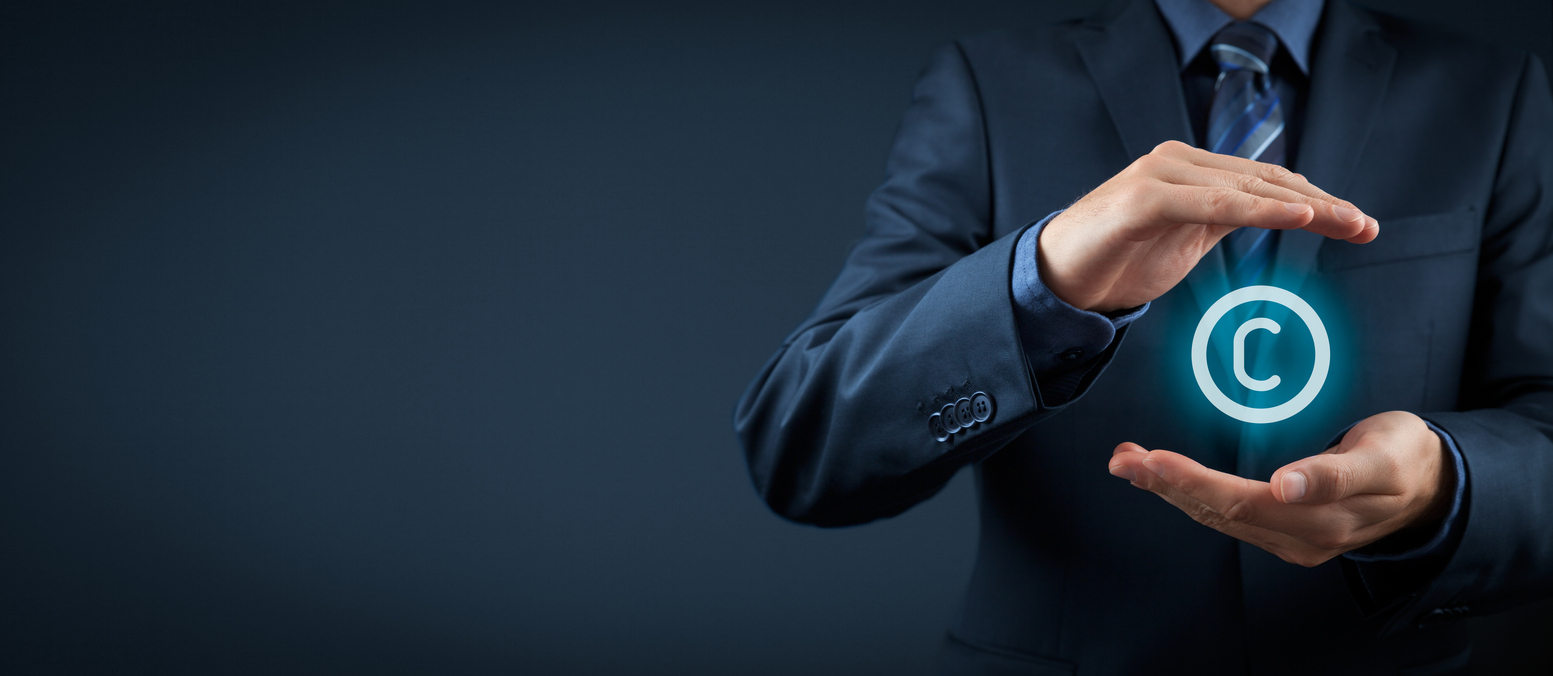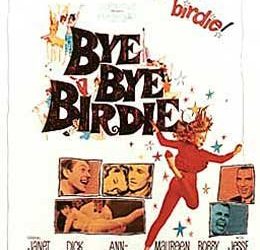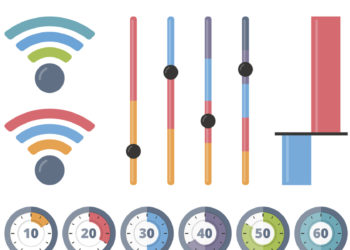Authors have a tremendous amount of leverage in scholarly publishing, which they often overlook and rarely take advantage of. One aspect of this leverage is in the copyright assignment. There are many ways in which the copyright for content can be transferred from author to publisher to facilitate publication. Getting authors to use this leverage in scholarly communications has a long history. In 2006, for example, there was an effort to get authors to drive publishers to change their behavior. As the push for open access has continued, there are some who argue that published science should not only be freely available to read, but also unencumbered by any copyright restrictions whatsoever.
A while back, I engaged in a back and forth on Twitter with a few people in the community who are strong supporters of open access. The question we discussed briefly and which eventually became unwieldy for Twitter was this: If a researcher chooses to publish using a Creative Commons license, what difference does it make whether the author retains or transfers copyright to the publisher?

According to the Creative Commons website, “You should think carefully before choosing a Creative Commons license.” There is a lot of thought that went into crafting the CC license system, which should be respected, but the choices one makes are not without implications. Creative Commons might not be right for everyone, nor is it always the appropriate solution.
For example, one annoyance I have heard is with publishers who are “selling” access to creative commons licensed content. Unless an author explicitly chooses a Creative Commons license encumbered with a non-commercial clause, the author has effectively licensed the content for commercial reuse by other parties. Anyone has the right to charge for the author’s work if the authors chose to use CC-0 or CC-BY. There has been a long history of re-publication of public domain works for profit, and I expect that as long as there are people willing to pay for otherwise free content, this service will continue. Some publishers even go so far as applying their own copyright statements on the public domain work. I should note that there are certainly instances where publishers do add value to public-domain works, such as annotated versions, translations, or other creative additions to public domain works. Also, in a print world, charging for physical production (even at a markup) certainly seems reasonable and not at issue.
Another example is when a publisher who was paid for a certain licenses to be applied to content, and for that content to be distributed freely fails to honor those terms. Often, these are systematic or production errors which are corrected when brought to the publisher’s attention. Occasionally, errors are perhaps not unintentional, but here too, there are forums for calling out those bad actors in the community. A lot has been made of identifying unscrupulous open access publishers and progress has been made on that front. On the whole, this seems to me to be a less frequently the case than is often presumed and those who get called out most viciously are likely not intentionally bad actors.
But my specific question is whether ownership of copyright makes sense for content that is made available via some variant of CC license, or whether it is sensible to transfer the copyright to the publisher after a CC license is applied. In the case of CC-0 and CC-BY, at best it doesn’t matter and realistically there are ways in which transfer of the copyright and its management might be beneficial to the community. For the non-commercial (NC) and no-derivatives (ND) versions, there may be value to the author, but just as likely there is a downside to retaining that value.
As an author who has retained my copyright on occasion (and here), transferred it on others, as well as distributed my own content using CC licenses, I am of multiple minds on the subject. First from the perspective of ownership, I find that authors are far too willing to sign away their intellectual property rights. This is true of authors signing publishing contracts, of photographers using Instagram, of creators of video using YouTube, and of musicians, working collaboratively on Kompoz. Some of these services are, by their nature, meant to be social for sharing and remixing, but sharing can still take place while retaining copyright. Furthermore, there is something to be said for the value that publishers, recording, and movie studios bring to our cultural landscape and we would all be less well off, intellectually, were we not to have them. However, there is an equally long history of artists, authors, and creators of content who have not been fairly compensated for their work. If I was primarily concerned with compensation or control, I would not have assigned a CC license in the first place.
There are downsides to an author or content creator retaining copyright. First, again from my own experience, I have done nothing to track the compliance of my copyright terms for the content that was distributed using CC licenses. I am unlikely to do so in the future unless confronted with something that becomes wildly popular in the broader culture, such that the infringement actively comes to my attention. Probably, I am like many other authors or content creators in this regard: I trust in compliance of the majority and most minor forms of infringement do not significantly bother me. Another way of stating this is, the possibility that infringement is taking place is not so bothersome that I’m going to take time to pursue monitoring it. It is my experience that publishers do track compliance, broadly speaking and take steps to ensure compliance. They do so because a majority of the content that they are monitoring is under copyright that they control and they have a financial stake in maintaining that control. Whether they would in a world where most of the content that they distribute was Creative Commons-licensed content, is unclear. However, they would certainly be more likely and able to do so than individual authors. This would likely be the case even had I posted content with limitations on derivatives or non-commercial use.
It is publishing best practice to embed a copyright statement in the text of the document as well as in the metadata associated with the object.
Management of copyright is another area of concern where I believe that there would be value in having copyright centrally controlled by a publisher. We have seen the problems with orphan works, where there is an undetermined number of authors who may have let copyright lapse or they may have renewed it, but we have no way of knowing because the rights have reverted to the author. In the case where the publisher was involved, there are generally corporate records that can be tracked. Even if there was a merger, an acquisition or even a bankruptcy, these records are normally archived. Again, this isn’t a perfect solution, but when a corporate entity is involved, it is more likely that records will be maintained than if that were simply an individual. There could be other ways to manage the copyright tracking problem, as is being developed in the UK and has even been discussed as a model in the US. Of course a better solution would be to reconsider whether it is an appropriate reading of the clause “by securing for limited Times” in the Constitution to include a period that extends over a century in nearly all circumstances.
Where this comes out most importantly has to do with the association of the rights to the content object. It is publishing best practice to embed a copyright statement in the text of the document as well as in the metadata associated with the object. However, this is not always the practice for every publisher, nor for every redistributor of that content. Certainly, it should be best practice, but it is not always the case with files posted to repositories or on author’s own website. If copyright statements are not included, or subsequently removed, inadvertently or not, the content object that is left behind is not usually presumed to have no restrictions to copyright, it is the opposite case. Libraries, for example, presume the most stringent copyright terms (all rights reserved) for content that is redistributed by the library. While this is the reasonable action to take for libraries, it could prevent libraries from distributing or sharing content that reasonably is free to share, or potentially reuse.
It would not be surprising if over the next 100+ years (an approximate term for content published today), content posted online with a CC-0 license somehow becomes detached from the licensing statement describing its status. Presuming that the author may be dead for at least 70 of those 100 years, we are looking at a significant copyright problem if more and more of the world’s content is distributed where there is no entity save the author’s individual estate to carry accurate information about the copyright status of that content. Assignment of copyright, even under a Creative Commons license is not a perfect solution to this issue, but again, it’s more likely to be a better solution than individually retained copyright.
Since a Creative Commons license cannot be revoked once it is assigned, is there any benefit to retaining the copyright individually? In the context of CC licenses, I don’t believe there is. Certainly, there are benefits outside of the application of CC licenses. But if you’re giving the community the rights to do whatever it pleases with your content, it doesn’t really matter whose name is after the © symbol.
Discussion
13 Thoughts on "Does It Matter Whose Name Appears After the © When Using Creative Commons?"
Although they do cast a wide net, CC licenses don’t grant ‘rights to do whatever’. Even CC BY has its limits (well-defined at that imo), yet it’s regularly implied that assigning a CC license is equal to relinquishing own copyright. It’s not.
And even if it were, the argument that authors should assign copyrights to Elseviers and Springers of the world simply because publishers will be here in 100 years while the authors won’t is especially cringeworthy.
Put short: you wouldn’t gift your house or car to a publisher, so why gift them your intellectual property then?
A rather poor analogy. No one can just move into your house or drive your car!
You are not gifting your copyright to the publisher. The publisher has the obligation to defend the misuse of your material. Also, the publisher will pay you for anyone who uses the material.
While publishers routinely pay book authors quite well for any licensing deals made from their material, I’m not aware of any journals that share licensing revenue with authors. If you know of any such practices, please do let us know.
Actually, every university press that publishes journals I’m aware of, including the two for which I worked, have clauses in their author contracts sharing subsidiary rights income, usually 50/50, with the authors. One author I recall who published an article in Philosophy & Rhetoric received in excess of $10,000 in reprint and photocopying fees. Does OUP not share such income with its journal authors? If not, it is an outlier in this respect among AAUP members.
Perhaps this is a difference in Science vs Humanities publishing, because as far as I’m aware, science journal authors are not paid a royalty when the journal sells a set of reprints to a pharma company or distribution rights to an aggregator.
Journal editors and authors — do your journals pay royalties to authors for licensing/have you ever received a payment from a journal when they did a permissions deal for reuse of your material? I’d love to know more.
Also a note, a colleague sent along a link to the Authors’ Licensing and Collecting Society (https://www.alcs.co.uk) of which OUP is a member. Authors in the UK can log their publications and receive a share of collective licensing fees. As far as I know, there is no similar organization in the US.
You don’t have to be a publisher to be a member of the CCC. Individual authors can sign up to receive royalties owed them from, for example, foreign licensing deals that the CCC has with counterparts in other countries. This will become even more the case now that European laws are changing to cut out the publisher from such payments.
For content protected under a CC ND license it makes sense to assign the copyright to a publisher because the publisher is generally in a much better position than an author to take advantage of the many subsidiary rights like translation, film rights, etc. Publishers know how to license translation rights, work out agreements with foreign publishers, and what to charge, for example. Film rights contracts are often very complex and well beyond the capability of most authors to negotiate.
I agree it probably doesn’t matter a great deal who owns the copyright when the licence is CC0 or CC By. But it matters enormously if CC By-NC or CC By-NC-ND is used, since the copyright holder is then the only party permitted to use the material on a commercial basis. For example, if I sign my copyright to a hypothetical evil publisher on the basis that they publish it under CC By NC-ND, they may subsequently update the article and make the new article available only on payment of a fee; but I, the author, am not free to do so.
Mike I am not too sure that a publisher can violate your copyright and claim a new article simply by updating it. Indeed, in book publishing contracts the idea of revision is covered and the author does not lose out in the process. I had author’s estates still receiving royalties after the author’s demise.
Problem is, if your copyright has been transferred to the publisher, it’s not *your* copyright anymore, but the publisher’s, who can do whatever it wants with the article (this is just what owning copyright is about). The only issue here is: would there be a new copyright (also held by the publisher) on the updated/revised work, as a derivative work based upon of the original one (what you call a “new article”). It depends on the nature and scope of the update/revision.
As to book publishing contracts covering revision, I’m afraid that I can’t agree with the statement “the author doesn’t lose out”. I’ve signed a few of those, and analyzed many more, to conclude that these (standard) contracts are usually heavily handed towards the publisher. Sure, a part of future revenues will be returned to the author, but the publisher retains the full control over the important decisions, including if, when and how revisions will be made. The last contract I saw stated that the publisher could (alone) decide to make a new edition, the author being given the choice between making said revision, or having the publisher hire people to make it, and recovering its full cost on future royalties.
Therefore, it’s what authors lose out: control over their works. Maybe it’s not important for some, but it’s crucial for me (and some others…).
One can also argue that Open Access-supporting foundations, such as the Austrian Science Fund that uses CC BY (http://openscience.com/the-performance-of-the-austrian-science-funds-open-access-promotion-policy/), need to either offer more copyright options within the Creative Commons range, or to spend more effort on developing their own copyright policy that will take into account author interests, open access standards and publishers’ models.


